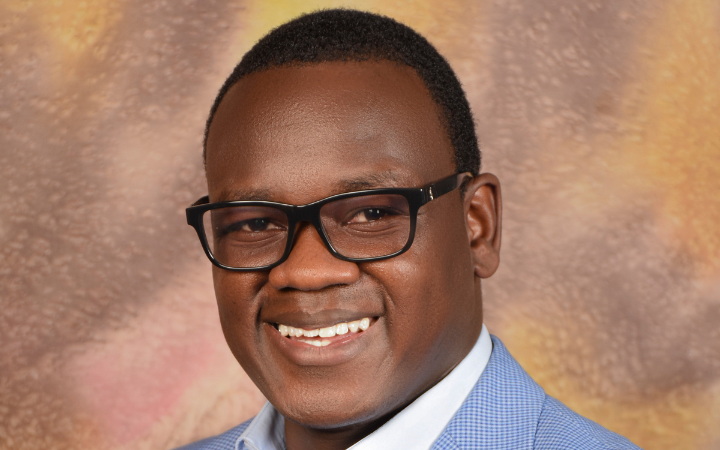Hillary Mulindi
Title: Research Assistant, Capital Markets Authority
Country: Kenya
Training programme: Fundamentals of Microfinance (AGFUND)*
Hilary Mulindi grew up surrounded by the beautiful landscapes of Western Kenya, with the world’s finest lakes, mountains and plains right before his eyes. Later on, he moved to Nakuru where he pursued his undergraduate studies in economics and statistics with a focus on Econometrics from Laikipia University. Today, Hillary has accumulated over 5 years of experience in financial markets research and policy, and currently works as a research assistant for Capital Markets Authority, an independent public agency responsible for supervising and licensing the activities of market intermediaries as well as facilitating mobilization and allocation of capital resources to finance long term productive investments. Hillary’s role is to provide support in the implementation of the Capital Markets Master Plan while also researching and developing various policy documents.
A truly driven person, Hilary is also pursuing a master’s degree in Economics (Econometrics) at Kenyatta University. On top of that, he is constantly looking for other learning opportunities to further improve his knowledge and skills. That is how he became familiar with UNITAR back in 2017.
I took a short course on private sector development and the experience was great! I was able to do it comfortably at my own pace regardless of how demanding my work schedule was. Based on that experience I have been checking UNITAR’s website to see if there are any relevant courses that I can take to add to my understanding in the field that I practice in. Since then, I have taken several UNITAR courses.
In 2020 Hillary took yet another UNITAR course, now on Fundamentals of Microfinance, hoping to get insights for policy research he was working on. “I was conducting policy research on the cost-benefit analysis of bank regulation in Kenya in collaboration with Kenya Bankers Association. Basically, we were trying to understand which policy aspects we could bring on board to encourage microfinance institutions to transcend into market-based financing; being small banks, and be able to raise capital on their own rather than depending solely on donors and owners’ equity”, he explains.
One of the aspects Hillary appreciated about the course was its methodology. “I have been doing various courses throughout my career, but this UNITAR course was presented in a very clear manner. The discussions in the platform were very enriching and the tutors were actively responding to inquiries and sharing further knowledge. Additionally, I truly enjoyed the fact that I could take the course in a smartphone application gave me much flexibility”, he highlights.
Another highlight for him was the case studies that, to his surprise, hit close to home. “The course brings interesting case studies and I connected with two of them that were about microfinance institutions from Kenya that target people in rural areas”, he reveals. Growing up, Hillary saw many people from his community subscribing to those microfinance institutions. “They would get finance for various projects, however, most of them focused on consumables rather than development. As a result, 2 or 3 years down the line, most of these people were losing their assets because they were unable to repay their loans. The microfinance institutions would then come to recover the assets that these people have, and at the end of the day, they would end up getting further into poverty”, Hillary recalls. “At that time, I was young and only observed the reality but with this course, I was able to contextualize it and comprehend all of it”, he adds.
More importantly, the knowledge Hillary gained from the course indeed helped him in his research policy.
Based on concepts of microfinance I got from the course I was able to model a scenario to look into the performance of big, medium and small banks, considering these microfinance institutions as small banks. The model showed me that it is not viable for them to transition because the regulatory framework creates impediments for their activities that would make them cost inefficient.
Now, Hillary feels more aware of some of the challenges that these microfinance institutions are facing, especially regarding the regulatory environment, and wants to continue to strengthen his knowledge on the topic to help improve the policies in place and assist these financial institutions to have better opportunities to grow while ensuring they also provide better support to people that look for their services so they can grow too. We are excited to see Hillary’s further contributions to increase opportunities for sustainable prosperity in Kenya!
*This course is funded by the Arab Gulf Development Programme (AGFUND), which allowed all selected participants to be sponsored and access the course free of charge.


